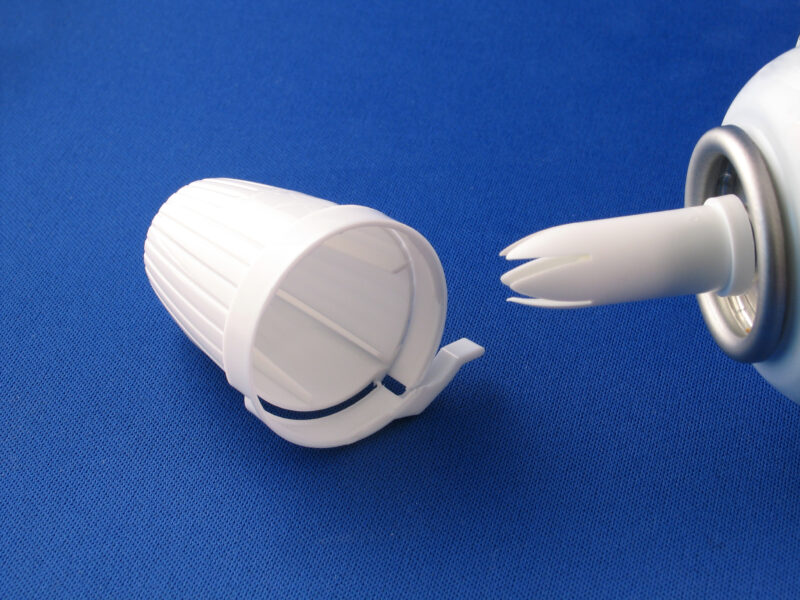
Table of Contents
The Truth About Whippets Drug Abuse

Written By: Ashley Laderer

Clinically Reviewed By: Courtney Way
April 8, 2025
7 min.
If you’re curious about how dangerous whippets really are, you’ve come to the right place. Keep reading to learn more about recreational nitrous oxide use.
Learn more about our Clinical Review Process
Table of Contents
If you’ve ever gotten laughing gas at the dentist, the term nitrous oxide might sound familiar to you. Nitrous oxide is the main component of “whippets” –– a type of inhalant drug people use to get a quick, euphoric high by breathing in the gas.
However, using whippets recreationally is not the same as having a medical professional administer this drug to you in an office. Just because whippets are easy to buy doesn’t mean they’re safe. Recreational whippet use comes with serious health risks, both short-term and long-term. Not to mention, whippets have the potential for addiction. Here’s what you need to know about whippets, how they affect your brain and body, and what to watch for when it comes to inhalant use disorder.

Concerned about whippet use?
Expert support for substance use disorders through personalized, virtual treatment.
What are whippets?
Whippets is a slang name for nitrous oxide, a type of gas that you inhale to get high. It’s classified as an inhalant drug. It may also be spelled as “whippits” or “whip-its,” and an alternative nickname is “hippy crack.”
Nitrous oxide was invented back in the late 1700s in England. A chemist hosted parties where nitrous oxide was the drug of choice for playwrights and surgeons alike, and partygoers inhaled the gas from a silk bag. Believe it or not, these early social experiments eventually led to nitrous oxide being adopted in the medical field.
Today, nitrous oxide is used in dental and medical offices to sedate patients for procedures and surgeries. However, when medical professionals administer it, they mix it with oxygen, so its concentration is between 30-70%, depending on the procedure.
Recreational use is much different. “Whippets are pressurized whipped cream chargers and are a readily available source of nitrous oxide,” says Nicole Lonano, a Charlie Health Group Facilitator. “They can be used to fill balloons, through a puncture of the top of the whippet and inhaled from the source of the balloon, which warms the gas and normalizes the pressure.” Additionally, the concentration of nitrous oxide is not diluted in a whipped cream charger, making the effects much more intense.
Not only are these whipped cream chargers readily available, but they’re also fully legal to purchase, although it’s technically illegal to possess them with the intent to get high.
What are the effects of whippets on the brain and body?
Whippets result in both short-term and long-term effects. The short-term effects are what bring the intense but short-lived high, but long-term effects can result in detrimental health impacts ranging from nerve damage to psychosis.
Short-term effects of whippets
Long-term effects of whippets
-
- Rapid onset high lasting 2–3 minutes
-
- Euphoria, numbness, and giddiness
-
- Physical side effects including dizziness, loss of balance, and weakness in the legs
-
- Serious risks including irregular heart rhythms, fainting, and death from asphyxiation due to lack of oxygen (hypoxia)
-
- Risk of nerve damage and neurological impairment
-
- Vitamin B12 deficiency (symptoms include muscle weakness, nerve damage, and psychiatric issues like hallucinations, delusions, and paranoia)
-
- Oxygen deprivation over time that may harm organs, especially kidneys and
What are the short-term effects of whippets?
When you inhale nitrous oxide, the high hits you quickly. “People may feel a sense of euphoria, numbness, and giddiness,” Lonano says. “These intense sensations only last two to three minutes.” Of course, as the nickname laughing gas suggests, there might also be some giggling. Since the high is so short-lived, users may repeatedly engage in the behavior, leading to inhaling more and more of the harmful substance.
On top of the high, Lonano says you might experience the following short-term effects:
- Dizziness
- Dissociation
- Disorientation
- Loss of balance
- Impaired memory and cognition
- Weakness of the legs
In some cases, you might experience an irregular heart rhythm or even faint. Furthermore, it’s possible to die from inhaling whippets. Research shows that deaths have occurred due to either arrhythmias (abnormal heart rhythms) or asphyxiation (suffocation). The suffocation is a result of hypoxia, which is when your body isn’t getting enough oxygen.
What are the long-term effects of whippets?
Long-term use of whippets can include nerve damage, neurological effects, blood-related issues, and psychiatric complications, including psychosis, Lonano says.
One of the major concerns and most common risks is that nitrous oxide can affect your body’s metabolism of vitamin B12 and cause a vitamin B12 deficiency, which is more serious than it sounds. B12 deficiency from whippets can lead to nerve damage and muscle weakness.
B12 deficiency caused by whippet abuse may also be responsible for psychiatric complications like hallucinations, delusions, and paranoia.
Additionally, since whippet abuse over time can limit the amount of oxygen available in your blood, it can take a toll on your organs, especially the kidneys and liver.
Are whippets addictive?
Whippets are not physically addictive like other drugs are, but someone can be psychologically addicted or psychologically dependent on nitrous oxide.
“Psychological addiction is the mental and/or emotional dependency on a substance,” Lonano says. Basically, someone can mentally crave whippets, remember how good they felt the last time, and want more and more, which, of course, leads to a dangerous slippery slope.
When someone has a psychological dependence on whippets, they might experience emotional or cognitive symptoms as a form of withdrawal, Lonano says. However, they will not have physical withdrawal symptoms, like sweating or vomiting, in the same way as someone with a physical addiction to another drug, like an opiate, would have.
When someone is addicted to an inhalant drug, it is called inhalant use disorder.

4 Tips for How to Help a Loved One With a Substance Abuse Problem
Charlie Health Editorial Team
What are the signs of nitrous oxide abuse?
If you’re looking for external signs that a loved one could be engaging in nitrous oxide abuse, Lonano says to watch out for these signs:
- Frequent complaints of a sore throat
- Strange bits of memory loss
- Reduced cognitive ability
- Possession of small metal canisters or deflated balloons that smell odd
- Strange odors on the breath
- Becoming abnormally interested in whipped cream
If you’re curious if you personally have a problem with abusing whippets, Lonano says look out for:
- Constantly craving whippets
- Prioritizing getting high from whippets over essential parts of life
- Continuing to use whippets even though you know it puts your health at risk
- Being unable to control your use or stop
- Frequently consuming more whippets than you intended to
- Continuing to use the drug despite negative consequences
These are key signs of a specific type of substance use disorder called inhalant use disorder and should not be ignored.
What is the treatment for whippet abuse?
The best treatment options for a whippet addiction include various types of therapy, such as cognitive behavioral therapy, motivational interviewing, and family therapy. Twelve-step programs or other sober support networks can help, too.
1. Cognitive behavioral therapy (CBT)
CBT is one of the best treatments to help someone recognize and cope with the misuse or abuse of a substance, Lonano says. CBT helps you learn how your thoughts, feelings, and behaviors are connected. You will identify negative thought patterns and beliefs that might contribute to your inhalant abuse and then learn healthier ways to manage triggers and cravings.
2. Motivational interviewing
Motivational interviewing will help you explore your feelings while working towards a goal –– in this case, sobriety from whippets. The main principle behind this therapy is that everyone has the power within to create change. With your therapist, you’ll overcome ambivalence surrounding your substance use disorder, finding your own motivation, strength, and confidence to make the changes you want in your life.
3. Family therapy
Family therapy is a key aspect of substance abuse treatment, especially if a child or teen is the one abusing whippets. A family therapist can help family members better understand addiction while also improving communication and conflict resolution. Plus, you can address any dynamics or conflicts within the family that might be contributing to substance use.
4. Twelve-step programs and sober support networks
Twelve-step programs like Narcotics Anonymous (NA) or other peer-led support groups provide a sense of community, accountability, and structure, which may help you get clean and stay clean. There are also other options, such as:
- Refuge Recovery
- Yoga 12-step Recovery (Y12SR)
- SMART Recovery
These groups all serve as safe spaces where you can connect with others dealing with similar struggles on their own sobriety journeys, which can help you build your emotional sobriety.

How Charlie Health can help
Do you think you (or a loved one) might have a problem with whippets? If so, Charlie Health can help. Charlie Health’s virtual Intensive Outpatient Program (IOP) provides more than once-weekly mental health treatment for individuals dealing with serious mental health conditions, including inhalant use disorder and co-occurring mental health conditions like depression, anxiety, and post-traumatic stress disorder.
Our compassionate clinicians meet you where you are on your recovery journey and create personalized treatment plans to help you heal. We incorporate evidence-based therapies, like cognitive behavioral therapy and motivational interviewing, into individual counseling, family therapy, and group sessions. With this kind of holistic treatment, overcoming inhalant use disorder is possible. Fill out the form below or give us a call to start the journey towards sobriety today.
References
https://medicine.yale.edu/news-article/nitrous-oxide-effects-are-reversible-with-early-treatment/
https://www.ncbi.nlm.nih.gov/books/NBK532922/
https://psychiatryonline.org/doi/full/10.1176/appi.ajp-rj.2023.190201
https://health.clevelandclinic.org/what-are-whippets
https://pubmed.ncbi.nlm.nih.gov/34348072/
https://my.clevelandclinic.org/health/diseases/15742-inhalant-abuse




